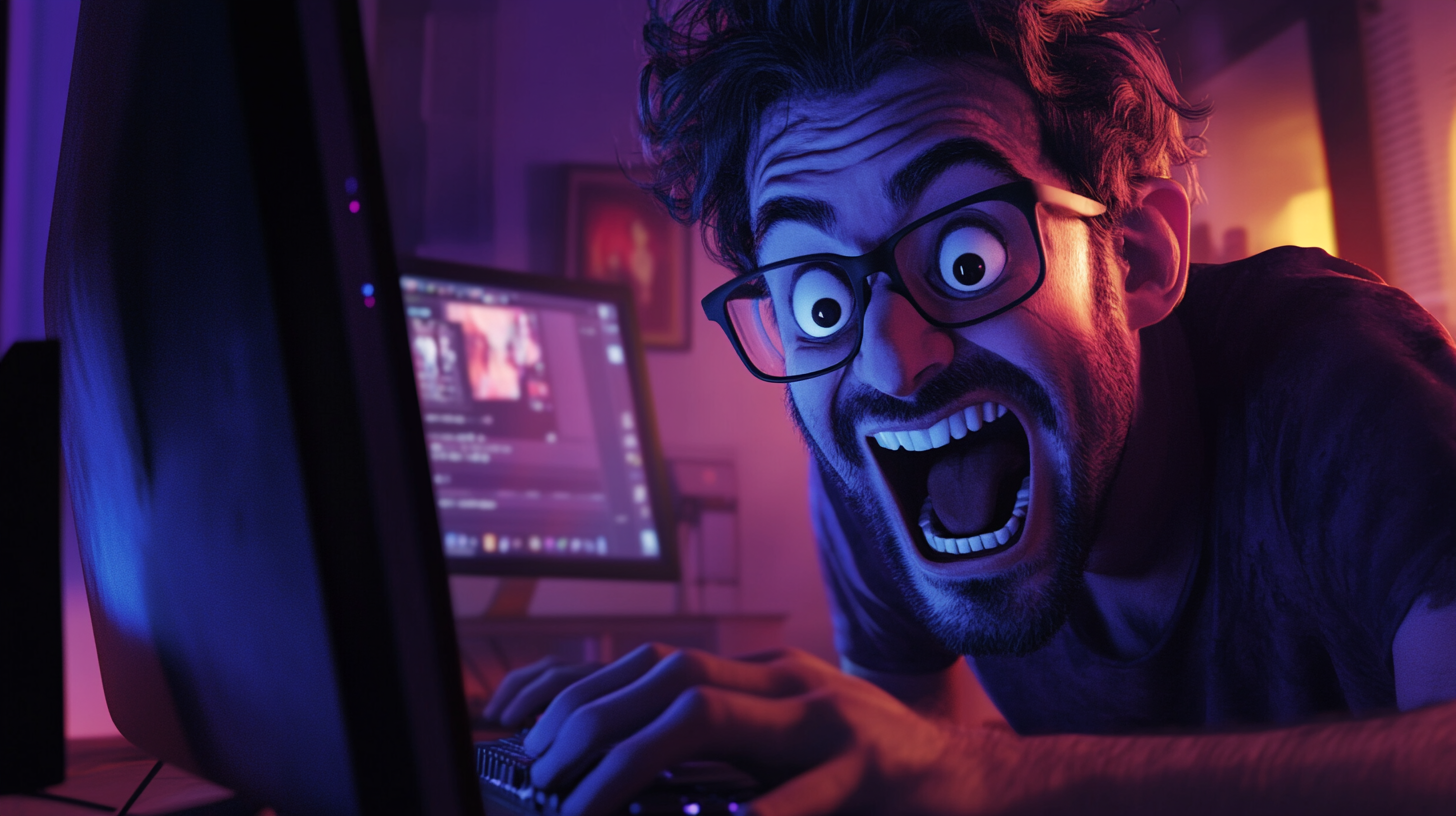Why is there so much hate for artists?
I have mentioned before my fatigue regarding the incessant social media posts showing examples of the latest results from AI video generation tools, and this trend doesn’t seem to be stopping anytime soon.
These posts usually start by claiming “It’s over” or “Hollywood is cooked” and then proceed to show impressive examples of video clips generated using the latest AI video models.
What usually follows is a thread of comments celebrating the latest results and excitement over the possibilities for future filmmakers. As a filmmaker exploring and navigating the advancements of AI filmmaking, I too get excited by these advancements, but at the same time, I can’t help but be disheartened by the amount of people relishing the eradication of certain jobs in the arts.
To a certain extent, I understand why people have disdain for Hollywood these days; the constant reboots and remakes, bastardizing of beloved franchises, formulaic stories, lack of risk-taking on new talent and ideas, it all gets tiresome. The thought of new technology upending the whole industry and making it more accessible to upcoming storytellers makes for an exciting future of possibilities.
However, what gets to me about what I am seeing with these responses is the enjoyment people express about the possibilities of certain artists (notably voice-over artists, actors, and special effects artists) losing their jobs to these technologies. History confirms that technology advancements have the power to completely change certain industries, often resulting in job loss, and AI is causing many to feel anxiety over still being relevant in this unpredictable future. What I don’t understand is why anyone would feel joy in a certain group of people losing their jobs over others. Maybe people are just mean!
As a filmmaker, I am embracing these tools; they are enabling me to create in so many ways I wasn’t able to in the past. But as an AI filmmaker, I am fully aware of the limitations of these tools. Yes, I know things are only getting better and it could only be a matter of years (maybe even months) before we see AI models producing entire movies from a single prompt, but so far they still require a lot of human input. If fully AI-generated movies become a reality, which I actually hope they don’t, do we really expect them to be anything different from the tripe Hollywood is churning out right now?
Something I do think has been inevitable for content creators to embrace is AI-generated voiceovers. Sound is one of the most neglected aspects in low-to-no-budget filmmaking. New filmmakers can easily get excited by the technology, tools, and techniques to create great visual content, but the unseen aspects of filmmaking tend to not be as exciting. Incidentally, when I started my first YouTube channel, I went in the opposite direction. As a storytelling channel, audio seemed more important than the visuals, so I invested more in terms of cost into the audio aspects of my content. I also invested a lot more time in developing my storytelling and narration skills to elevate this aspect of the channel. I am now benefiting from this investment as these skills and tools allow me to bring the additional skill of top-quality voiceovers to my filmmaking and content creation projects - something that has actually gotten me work as a filmmaker and editor.
Often, one-person filmmakers, content creators, wear many hats, and audio and narration for videos tend to be assigned the least of the budget. Good narration takes skill and time, and paying a good artist for even a small amount of work gets expensive; hence, the embracing of AI voice-overs for video. AI-generated VOs are starting to sound great; I have used them myself, but where they fall short is long-form content. They lack the variation of cadence and uniqueness of delivery. It is very easy to tune out of an AI voice-over because it fails to connect with us in so many subtle ways we aren’t even consciously aware of. One of my clients has tried time and time again to utilize AI voice-overs 100% for their content, but after many attempts, they have had to go back to real human voice-overs. They just can’t achieve the results and engagement they are looking for with AI.
Again, these tools will inevitably get better given time, but here’s the thing: there is something so human about the voice that I don’t see how good-quality long-form content can be replicated. Storytelling is something so inherently human that has been passed down and evolved for centuries; I fail to see how a machine could fully replace that. Even if it could, would we want it to?
When we watch an emotional scene in a film or television show, we don’t connect emotionally to the digital technology replaying of the visuals and sounds; we connect to the believable human recreation portrayed by the actors in the scene.
The skills of good voice-over artists and actors, ones that have truly studied and developed their craft, don’t come easily to everyone. Anyone can read a script, but, as Sanford Meisner put it, “acting is living truthfully in imaginary circumstances.” This is not something that comes naturally to everyone, especially those only investing in the technical aspects of filmmaking. I believe this is a reason there are so many relishing in the eradication of these professions. If these skills are hard for certain people to understand and acquire, it is easier if they are just no longer a requirement.
I believe that with these AI tools, we will be flooded with new AI filmmakers creating all kinds of interesting content. But in order to stand out, which will get harder as the market gets more and more saturated, these filmmakers will need to find ways to ensure their content is authentic and human to truly connect with their audiences.
